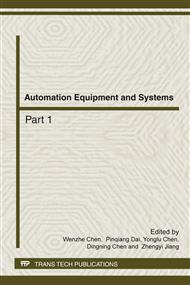p.1313
p.1322
p.1326
p.1330
p.1334
p.1339
p.1344
p.1349
p.1353
Schur Decomposition Model Reduction Algorithm of Discrete-Time Singular Dynamical Systems
Abstract:
In this paper, a model reduction for discrete-time singular dynamical systems is investigated. First, by transforming the original systems, the singular systems of impulse models are decomposed into the casual subsystems and the non-casual subsystems, and the reduction problem becomes merely a simplification of the non-casual subsystems reduction. Based on the Schur decomposition and apply Matlab to reorder the Schur forms, the degree of the systems state controllability and observability is scaled by Hankel singular values, and the results show that the controllability and observability of the states which are corresponding to the smaller Hankel singular values are weaker. Based on it, a new model reduction algorithm of discrete-time singular systems is given. Finally, a numerical simulation illustrates the effectiveness of the proposed algorithm.
Info:
Periodical:
Pages:
1334-1338
Citation:
Online since:
February 2012
Authors:
Price:
Сopyright:
© 2012 Trans Tech Publications Ltd. All Rights Reserved
Share:
Citation:


